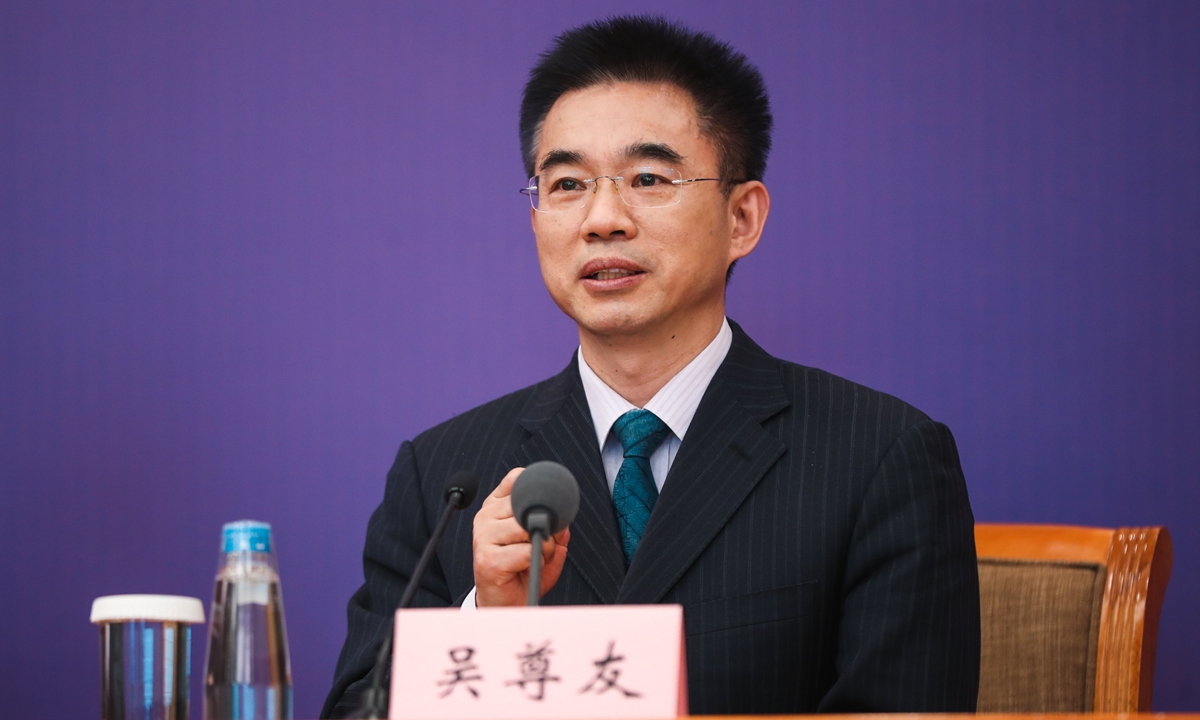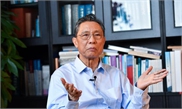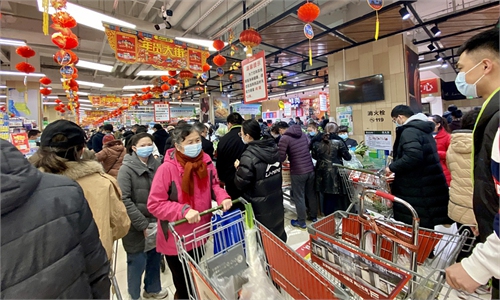CDC expert proposes China, US mutual vaccine recognition, lifting of travel restrictions
Scientists urge collaboration on promoting COVAX global alliance

Wu Zunyou, China's CDC chief epidemiologist Photo: cnsphoto
The chief epidemiologist of the Chinese Center for Disease Control and Prevention (CDC) Wu Zunyou proposed that China and the US should work jointly to lift mutual travel restrictions in August or September when the US is expected to reach herd immunity, suggesting the two countries seek mutual recognition of vaccinations and give priority to official, business travel and overseas study.Wu explained his proposal to the Global Times on Tuesday, saying that the free travel plan between China and the US should proceed in three steps.
First, China and the US should mutually recognize vaccinations in the other country and limit free travel to only those who have been vaccinated.
Second, free travel should then be given to official and business travel and overseas study and third, all travel types should be covered, Wu said.
China is the safest country in the world in terms of COVID-19 prevention, with no community transmission reported and the US is likely to vaccinate around 80 percent of its population by June and 90 percent by August, reaching herd immunity, Wu said on Monday at an online forum about US-China collaboration on COVID-19 prevention and treatment organized by the Washington-based Brookings Institution and Tsinghua University in Beijing.
"If that is the case and if we could remove all political barriers, just based on science, the two countries could possibly be the first two countries to lift travel restrictions with each other," Wu said.
During the forum, Chinese and American top scientists proposed detailed bilateral collaboration plans in the health sector.
Gao Fu, director of the Chinese CDC, urged China and the US to collaborate on promoting COVAX, a global initiative led by Gavi, the Coalition for Epidemic Preparedness Innovations (CEPI) and the WHO aimed at equitable access to COVID-19 vaccines, as well as the UN's 17 Sustainable Development Goals and inequities. Bilateral collaboration should also be conducted on scientific research of the origins of the coronavirus as well as working on public health and COVID-19 vaccines, Gao said.
Zhong Nanshan, China's top respiratory disease expert, said at the forum that China-US collaboration on COVID-19 should be based on science and evidence rather than being politicized. He stressed the need to have close collaboration between the two countries on COVID-19 research, as producing improved vaccines and cocktail antibodies would play an essential role in addressing the next wave of the pandemic in the near future.
Tom Frieden, former director of the US Center for Disease Control and Prevention, said that there's a great value to bilateral work between China and the US in other parts of the world such as Africa to strengthen early warning and rapid response systems.
Frieden proposed that both countries share intellectual property and techniques in COVID-19 vaccine manufacturing to jointly expand global vaccination, so that manufacturers and other parts of the world can benefit from what really should be a public good.
On the supply chain of the COVID-19 vaccine, Chinese syringe and needle suppliers have seen their orders pile up for months as the Biden administration ramps up its efforts for COVID-19 vaccinations. Several business representatives told the Global Times that orders from the US remained strong since last year when the country unveiled plans for public vaccinations.
"The only enemy here is the virus and the more we are united, the more effectively we will be able to fight that virus," Frieden said.
Several projects related to COVID-19 research between China and the US are underway, including collaboration between Guangzhou Institute of Respiratory Health and Harvard Medical School (HMS), funded by China Evergrande.
David Walt, HMS professor of pathology, said that the HMS had a very significant interaction with colleagues at the Guangzhou Institute of Respiratory Health.
"We learned a lot from them in the early days because we had no diagnostic tests at that point, and they were sharing their experiences and lessons learned," Walt said, according to the website of the HMS



